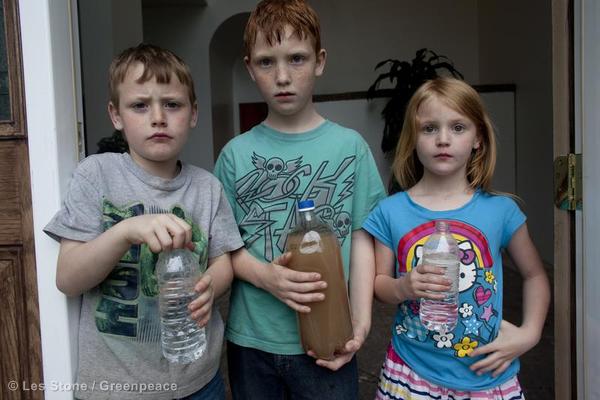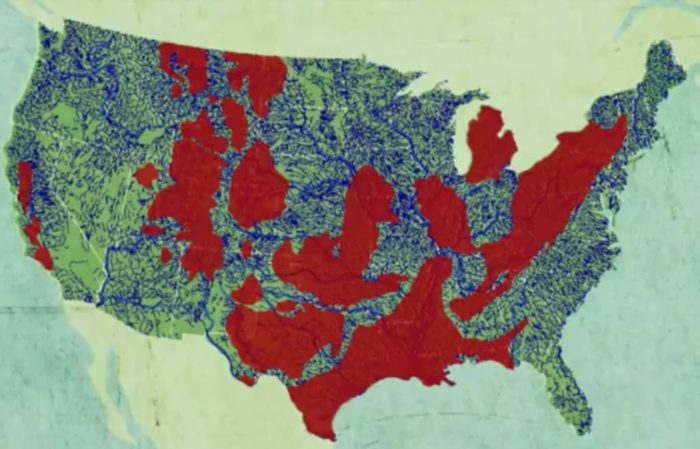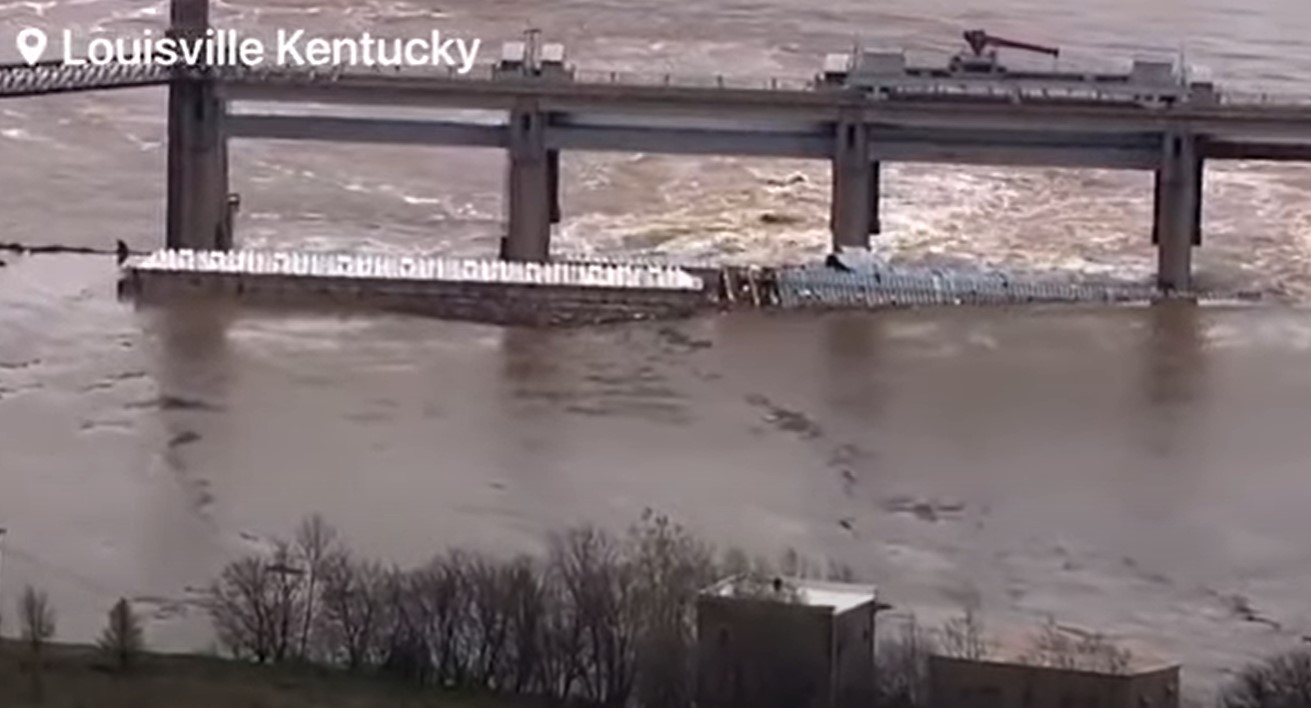State lawmakers in Pennsylvania are demanding an investigation into the public health impacts of fracking after a new study found evidence of harmful chemicals accumulating in the bodies of children and their families living near fracking wells in communities inundated by fossil fuel development.

Environmental Health News, a nonprofit news organization, released a series of in-depth reports last week based on a two-year study of fracking pollution in Pennsylvania’s Westmoreland County and Washington County, two heavily fracked counties in a state that has been at the epicenter of the shale gas boom for over a decade. Backed by an independent review board of scientists, watchdog journalists found toxic chemicals associated with fracking in air and water samples at levels that exceeded safety thresholds.
The study also found evidence that people living near gas wells and other fracking infrastructure bear a “body burden” from fracking in the form of industrial pollutants such as benzene, ethylbenzene, styrene and toluene that were detected in their bodies at elevated levels. Families living closer to fracking wells also had higher levels of chemicals, such as 1,2,3-trimethylbenzene, 2-heptanone and naphthalene, than families living further away. These compounds are linked to irritation of the skin, eyes and digestive track, along with a host of health problems associated with exposure to fracking chemicals and emissions.
With help from scientists and a reputable lab, journalists collected urine samples from the families and tested them for fracking chemicals and their “biomarkers,” which are chemicals that show a pollutant has been broken down by the body. For example, one 9-year-old boy living near fracking wells tested positive for a biomarker of toluene, a harmful chemical that can damage the liver and kidneys, at levels 91 times of that seen in the average American.
Gunnar Bjornson, a 13-year-old boy who lives with his family in Washington County, tested positive for 11 industrial chemicals including benzene, toluene and naphthalene on a summer day in August 2019. Samples taken from Gunnar, his siblings and parents showed elevated levels of biomarkers for xylene, benzene, toluene, and other harmful chemicals associated with fracking for oil and gas at levels much higher than national averages.
The study’s scope is small — five households within a few miles of fracked natural gas wells — and the authors caution that more research is needed to show that the pollutants found in the bodies of residents came from the fracking industry. However, the study adds to a large body of research linking fracking to a variety of health problems ranging from asthma and migraines to cancer and increased infant mortality that has only grown as the fracking boom transformed large swaths of the United States over the past decade and as fossil fuel production skyrocketed. In Pennsylvania, research shows that low-income and rural families are most likely to be exposed to fracking pollution.
“We are seeing cancer-causing chemicals in children’s bodies.”
“Over the years, the research documenting the harms linked to fracking — from the pipelines and compressor stations to the toxic, radioactive waste created by all of this drilling — has continued to grow,” said Megan McDonough, Pennsylvania state director of the environmental group Food & Water Watch, in an email. “We are seeing cancer-causing chemicals in children’s bodies.”
Dave Brown, a toxicology expert with the Environmental Health Project who advised the authors of the report, said the study is the first of its kind in Pennsylvania. Brown said policymakers should be alarmed that fracking has been an issue in the state for years, but researchers are just now beginning to test for fracking chemicals in children. While the study doesn’t prove that kids are contaminated by fracking, the fact that the children both show an elevated “body burden” of chemicals associated with fracking and live near fracking infrastructure is telling.
“What would be the explanation of this, other than these people have potential exposures to these gas fracking chemicals?” Brown said in an interview.
Indeed, policymakers are alarmed by the study — well some of them, at least (the fossil fuel industry is known for spending large sums of money to influence lawmakers in Pennsylvania). Last week, a bipartisan group of 35 state lawmakers sent a letter to Gov. Tom Wolf, a Democrat, requesting he take “immediate action” and use state funding to conduct a study on exposure to fracking chemicals using similar biomonitoring methods. In short, the lawmakers want Pennsylvania to start testing its own residents for fracking chemicals years after the state was transformed by a fracking boom.
Lawmakers want Pennsylvania to start testing its own residents for fracking chemicals years after the state was transformed by a fracking boom.
“Quite frankly, allowing children and families from throughout our Commonwealth to suffer in the name of corporate profit is unacceptable, unethical, and immoral,” said State Sen. Katie Muth, a Democrat.
Wolf’s administration has already given $2.5 million dollars to the University of Pittsburgh to replicate studies from other states on the health effects of fracking and investigate a rash of rare bone cancers among children in southwestern Pennsylvania. A biomonitoring study would go even further, allowing residents to find out whether harmful chemicals associated with fracking are accumulating in their bodies.
“In southwestern Pennsylvania there are families grieving the loss of their children due to rare bone cancers, and they are demanding to know if their suffering is linked to the fracking industry,” McDonough said. “What more do we need to know? How much more suffering must we inflict on these communities before we say enough is enough?”
Here’s a fracking map of the US superimposed with main rivers and reservoirs…

If I was living in one of these red spots, I would definitively test my water… [EHN, TruthOut]
Now subscribe to this blog to get more amazing news curated just for you right in your inbox on a daily basis (here an example of our new newsletter).
You can also follow us on Facebook and/ or Twitter. And, by the way you can also make a donation through Paypal. Thank you!













1 If the well owners/operators are this bad controlling their frack fluids, than the State should fine them and shut them down.